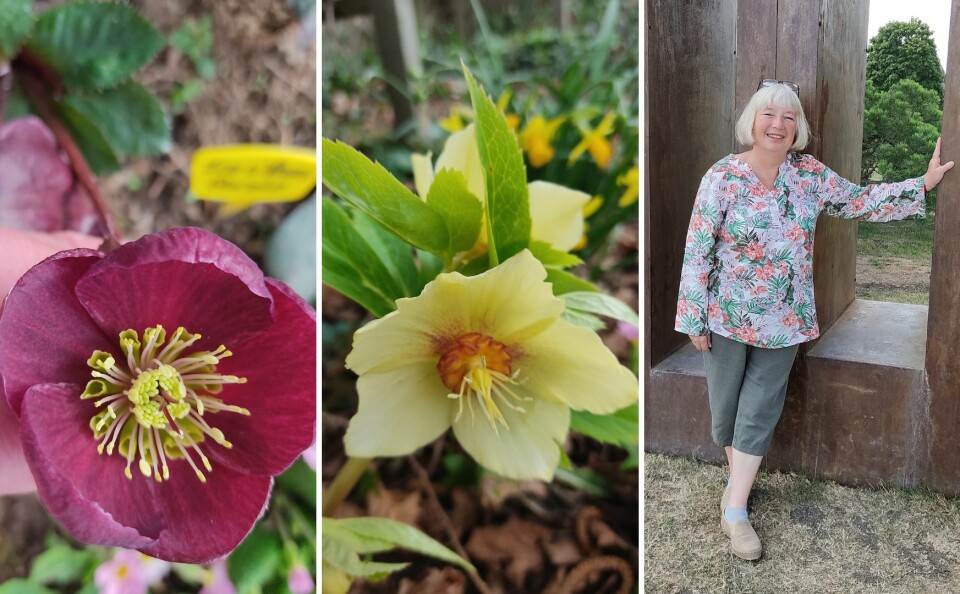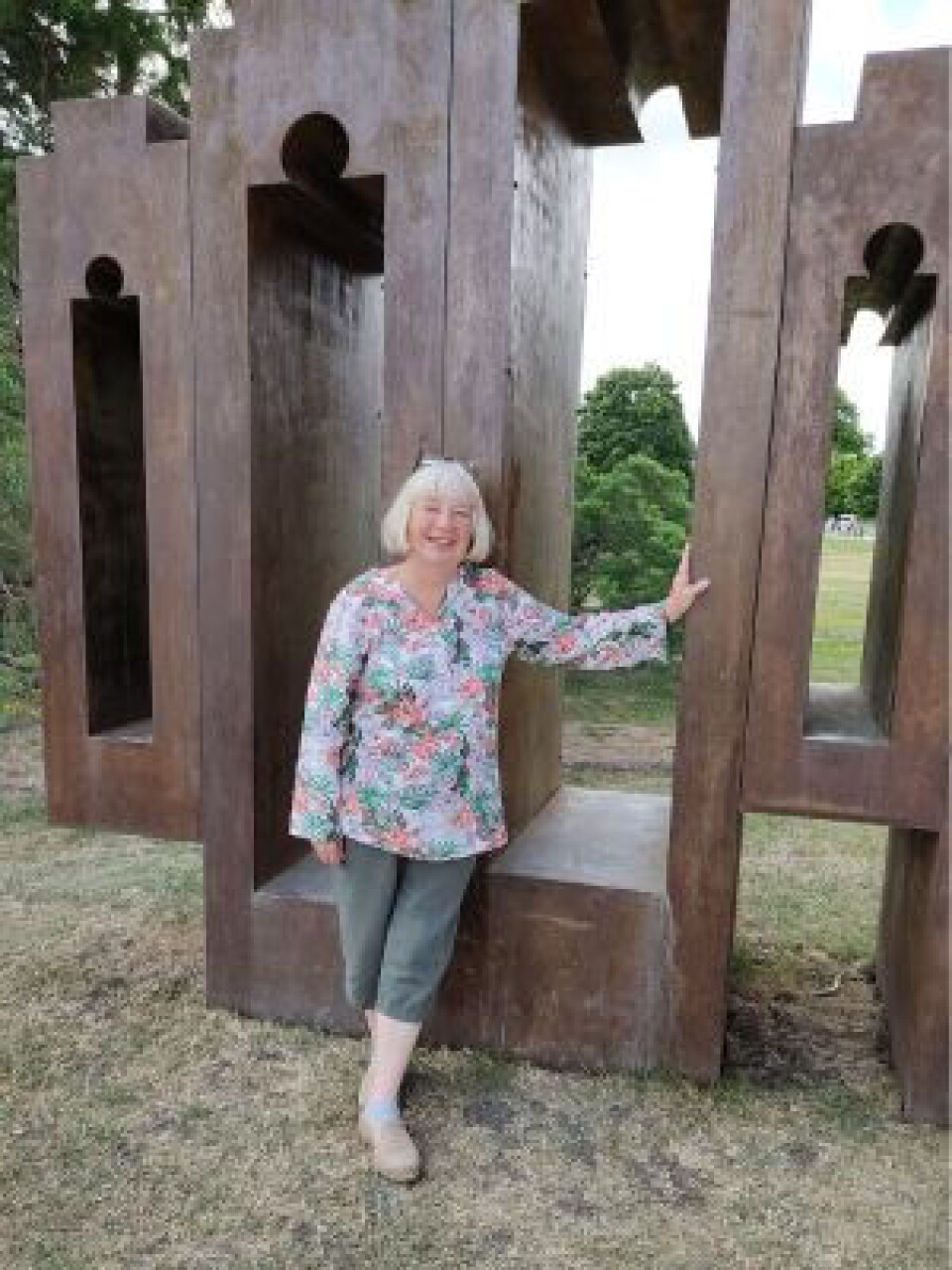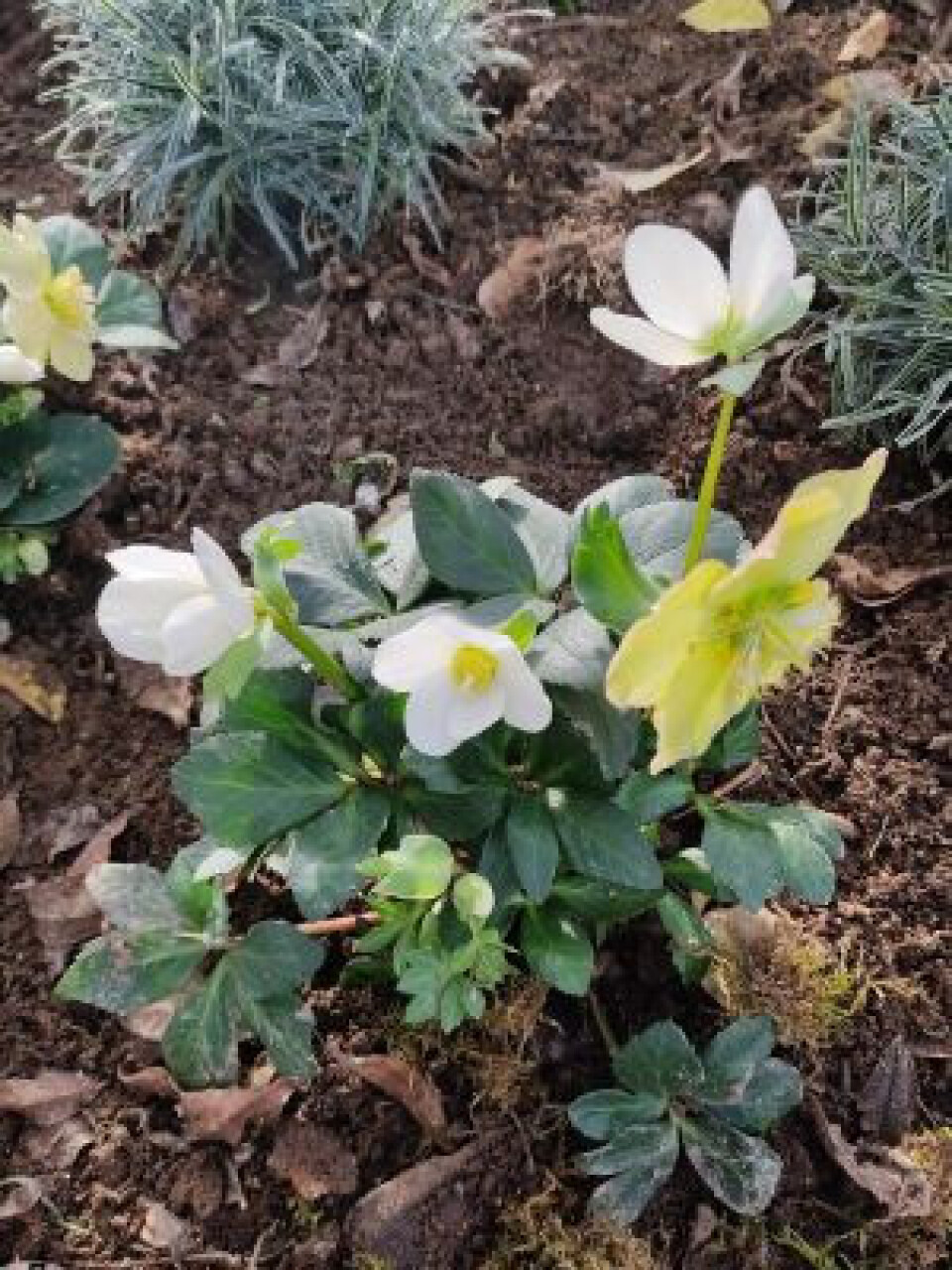-
Let your lawn grow, water for birds: how to help wildlife in your French garden
‘It is acceptable to have untidy hedgerows,’ says biodiversity spokesperson.
-
How to help hedgehogs in your garden in France
Follow these tips to create a healthy ecosystem for this protected species
-
How to pick and cook asparagus in France
Columnist Sue Adams explains how to make the most of the vegetable's short season
‘French gardeners love the Britishness of the Open Garden scheme’
Sue Lambert president of Jardins Ouverts talks afternoon tea, No Dig method and finding solace in her garden after losing her son

When Sue Lambert and her husband Mick bought a pied à terre in France’s central region of the Creuse nearly two decades ago, they had no idea how their lives were to change so dramatically.
A tiny house, in a hamlet, in a valley with a side garden and an additional field is what these two busy people bought.
Co-owners of three Day Nurseries for children in Hampshire, their lives were rather tied up with their business. They decided to sell up in the UK and embrace French village life.
Rough sketch to turn field into a garden
For the first 18 months they concentrated on setting the house to rights and then Sue turned to Mick and said she really wanted to turn their field into a garden.
She had a vague plan in her head and a rough sketch on paper. She knew she wanted a place to grow fruit and vegetables – she had had such places at all three Day Nurseries.
She had wanted all those in their care to have the experience she had had, as a little girl, with her dad in Walthamstow, South London.
She wanted her people to understand where their food came from and to enjoy the pleasure of growing. And then, she wanted what they had grown to be cooked by the staff so the children could eat the fruits of their labours.
A place of healing after losing their son
But Sue also wanted more for her own garden. She needed beauty and solace. She needed a place for remembrance and healing. Sue and Mick’s son Thomas tragically lost his life to suicide in this period.
She says that the garden sustained her, that working in the garden helped her to cope. Creating a private, enclosed space, with two exits, and a sense of peace, restored her.
Thomas’ memorial is just one of the garden ‘rooms’ they have now.

Photo: Sue Lambert created beauty and solace in her garden; Credit: Sue Lambert
Soil was ‘appalling’ quality
The garden is planted according to its aspect – the left-hand side is the shadier part and it’s here that Sue’s collection of early spring flowers thrive. Her beloved hellebores, stars of her garden, are here.
On the right-hand side, with pockets in full glare of the summer sun, there’s a ‘room’ with drought tolerant plants.
Sue worked using Essex garden guru, Beth Chatto’s, mantra of “right plant, right place”, choosing only those which would grow in such tough conditions.
She tells me ruefully that she had not thought to consider the soil when buying the house and land.
“It’s appalling,” she laughs and explains that the topsoil is thin and poor and that, below, is a layer of solid granite. They have spent many hours adding organic material.
Read more: Snowdrop display is perfect showcase for French Open Gardens charity
Using the ‘No Dig’ method
Another of Sue’s garden heroes is Charles Dowding who promotes ‘No Dig’ gardening.
They have three big compost bays for grass cuttings and prunings and two composters for all food waste, peelings etc. Occasionally their farmer neighbour will bring them a tractor scoop of cow manure, especially for the roses.
The potager or kitchen garden is a large rectangle, planted in rows so that the soil need not be stood upon, avoiding compaction.
Initially, root crops such as potatoes, carrots or parsnips would not have been possible.
Sue says she can only grow such things because of the No Dig method. She takes care to not damage the soil structure and she has now built up a much better soil depth.

Photo: They have spent many hours adding organic material to the poor soil so her beloved hellebores can thrive: Credit: Sue Lambert
An hour a day in the garden avoids overwhelm
They have a polytunnel on the site but, as Mick’s cancer left him unable to eat certain things, she now concentrates on a reduced number of tomatoes – six plants in total, three different varieties – overwintering salads and greens like pak choi.
She grows from seed only when she can sow direct into the ground. Sue shrugs, “I have good intentions but it’s time. We all have our own priorities.”
Sue is a big believer in plug plants. “I’m not a fiddly person. I do division by necessity.”
Two years ago Sue resolved to do at least an hour in the garden every day. This way, she maintains, things never get on top of her, she doesn’t feel overwhelmed. And she’d be the first to admit that it does her good too, to have a daily reset.
Read more: Open Gardens group offers a warm welcome to all volunteers in France
Opened the garden as a ‘work-in-progress’
Sue began her garden with no intention of opening it. Around 2016, a friend with whom she did French lessons invited her to the AGM of Open Gardens/Jardins Ouverts. She went and listened to Mick Moat, the founder, and began to consider the possibilities.
With her friend’s encouragement, Sue opened her garden in 2017 as a work-in-progress. She contacted Mick Moat and subsequently joined the committee and became the Garden Development Officer.
This year – the Association’s tenth year – she is its interim president.
Sue is clear on Open Gardens/Jardins Ouverts future. “We always need to grow and renew,” she says. Some members who have opened their gardens from the beginning are now older and can no longer continue.
Read more: Open gardens in France - show off your garden or visit one near you
French gardeners love the Englishness of Open Gardens
Sue wants to encourage even more French gardeners to join and open their gardens.
Some 40% of garden openers are now French, she tells me. “We asked them if we should drop the ‘Open Gardens’ part of our name”, she adds. The answer was no – French members liked the fact that the origins were ‘So British’.
They liked the very Englishness of afternoon tea at the Open Gardens and didn’t want this to change.
Sue wants to bring in yet more garden openers and looks forward to more than teas – she suggests people who feel their garden is not interesting enough for just a visit have garden-based events such as yoga with a garden lunch after the session, or a walk ending up in a garden for a picnic, or a garden coffee morning.
She wants more diversified gardens including those which focus on autumn leaf colour.
Sue wants to promote the conviviality of gardening, its restorative benefits and, most of all, the fun to be had.
She also wants to extend the season. Gardens are not just for the summer months, she says. Sue deals well with summer heat – she doesn’t relish it and looks forward to autumn and the return of a more temperate climate.
Read more: Best plants to add a pop of winter colour to your French garden
Fun to get involved with Open Garden events
Sue is looking for people all over France to become members of the Association, not just to open their gardens but to host events, to support other garden openers, to propagate plants to sell, to bake cakes or to serve teas or do lunches.
She wants people to realise how much fun can be had doing these things and how much benefit participants gain personally in terms of their morale and their physical and mental health.
And that’s without detailing the incredible amount raised for French children’s charities – over €150,000 now.
Do go to the website and maybe you can pay Sue a visit. She would love to show you her hellebores, snowdrops and other spring flowers this March and then in June she’ll be opening again with two of her neighbours when you will be able to marvel at her magnificent roses (thanks to the cows).
Related articles
French gardens to delight visitors in the bright, cold days of winter
Gardening in France: New Year’s resolutions and jobs for January
Explainer: Rights and obligations for shared garden walls in France
























